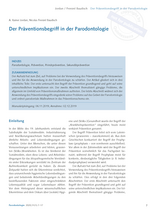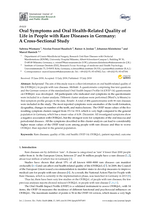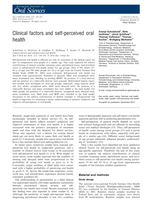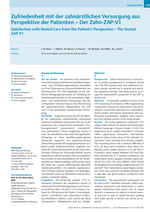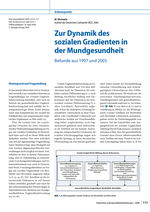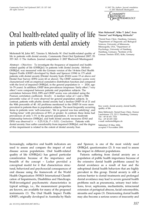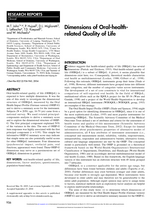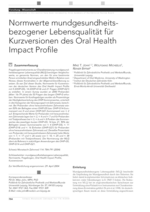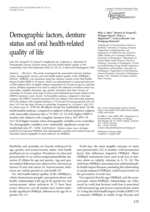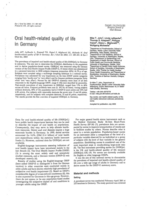
Medizinsoziologie und Gesundheitskompetenz
Autoren
John, Mike T.
Miglioretti, Diana L.
LeResche, Linda
Koepsell, Thomas D.
Hujoel, Philippe
Micheelis, Wolfgang
Schlagwörter
Health-related quality of life
Oral health-related quality of life; questionnaire
Reliability
Short instruments
Validity
Publikation — Zeitschriftenbeiträge
Titel
German short forms of the Oral Health Impact Profile
Titel kurz
Community Dent Oral Epidemiol
Titel Ausgeschrieben
Community Dentistry and Oral Epidemiology
ISSN
0301-5661 (Print); 0301-5661 (Linking)
Jahr
2006
Ausgabe
34
Issue
4
Seitenzahl
277-288
Erscheinungsdatum
01.08.2006
German short forms of the Oral Health Impact Profile
OBJECTIVES: We report the development and psychometric evaluation of short forms of the Oral Health Impact Profile German version (OHIP-G) - an instrument to assess oral health-related quality of life (OHRQoL).
METHODS: A five-item short form was developed using best subset regression in 2050 subjects from a national survey. Two 14-item versions were derived from English-language short forms and a 21-item version from previous factor analytic work. A second sample from the general population (n = 163) and a sample of clinical patients with temporomandibular disorders (TMD; n = 175) were used to investigate validity and internal consistency. Test-retest reliability was evaluated in 30 prosthodontic patients before treatment. Responsiveness was assessed in 67 patients treated for their TMD pain.
RESULTS: Associations between short form summary scores and self-report of oral health and four oral disorders in the general population and in TMD patients were interpreted as support for convergent/groups validity. The instruments' responsiveness (effect measures of 0.55-0.98), test-retest reliability (intraclass correlation coefficients: 0.72-0.87), and internal consistency (Cronbach's alpha: 0.65-0.92) were sufficient.
CONCLUSIONS: Sufficient discriminative and evaluative psychometric properties of short forms of the OHIP-G make the instruments suitable to assess OHRQoL in cross-sectional as well as longitudinal studies.

